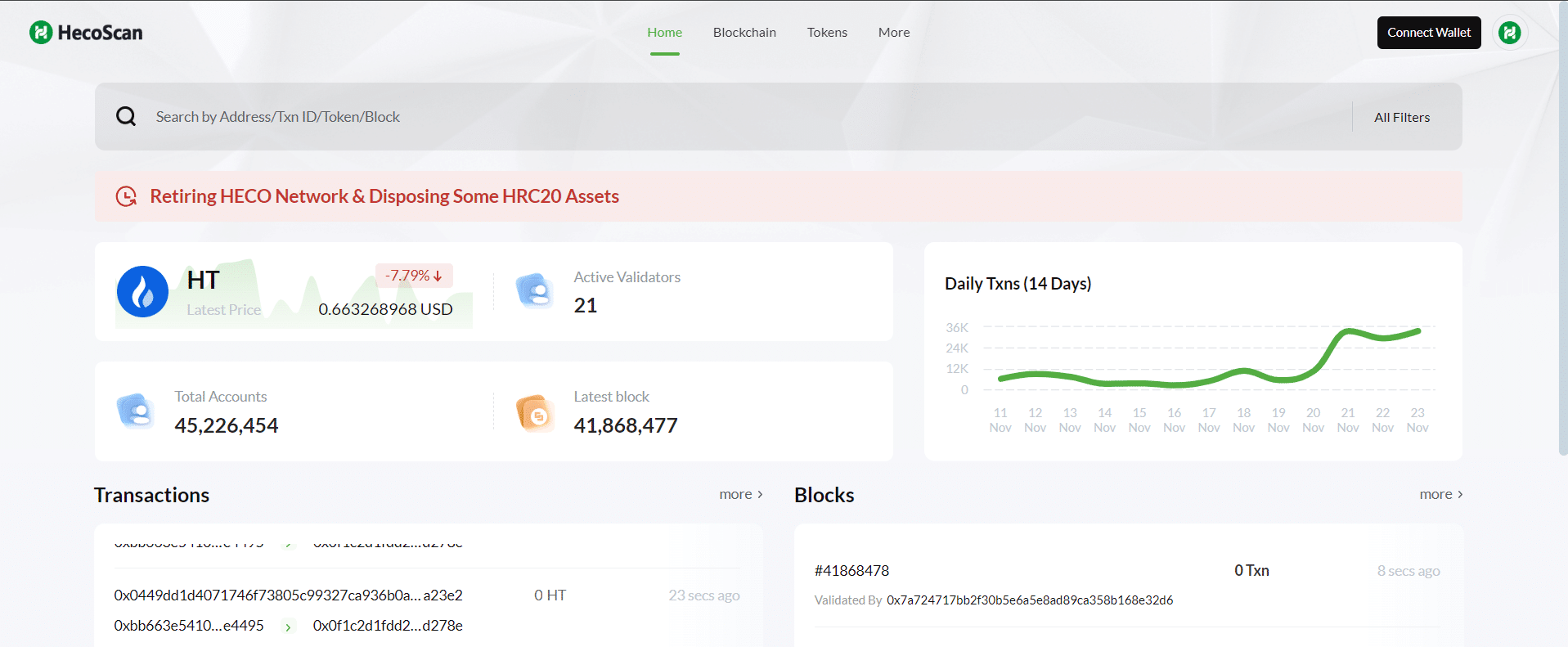Huobi’s Heco Chain announces retirement, urging users to redeem HRC20 assets before Jan. 10, 2025.
The Heco chain, a decentralized blockchain launched by Huobi Exchange, was backed by some of the most esteemed DeFi projects, including LendHub, which was a credit and debit protocol offering mining solutions, and MDEX, a decentralized trading platform known for liquidity and transaction mining. These projects have shaped Heco’s ecosystem, focusing on developer-friendly tools and cross-chain DeFi innovation.

The decision signifies the end of the network’s activities and will also lead to the removal of HRC20 assets, including HRC20ETH, HRC20TUSD, HRC20LINK, HRC20USDC, HRC20TUNI, HRC20SHIB, HRC20HBTC, and HRC20USDT.
Redemption Process:
To ensure a frictionless transition, users holding the specified HRC20 assets need to deposit their holdings into a designated address called “the redemption address,” which can be found on the HecoDAO’s official website by Jan. 10, 2025. The deposited assets will then be converted into points calculated from their Nov. 10, 2024 values. For every 1 USDT equivalent, users can earn 1 point linked to their wallet address.
After the deadline, the total points will be calculated and exchanged for $HTX tokens, with each point worth up to 200,000 $HTX. The distribution of these tokens will begin on Jan. 15 and will take place over 12 monthly payments. To receive the $HTX tokens during the redemption process, users must provide their TRON addresses.
Heco’s retirement showcases a significant shift in the decentralized financial space. The blockchain was initially designed as a cost-effective and easy-to-use alternative to Ethereum. Moreover, Heco provided lower transaction fees, allowed smooth cross-chain interoperability, and solid compatibility with Ethereum-based smart contracts.
The blockchain network shutdown highlights the challenges smaller blockchain networks’ face when competing against bigger players like Binance Smart Chain, Solana, Ethereum, and others. As Heco is coming to an end, users and developers must prepare in advance by converting their assets.
This article first appeared at crypto.news
